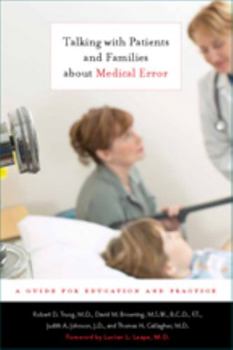Talking with Patients and Families about Medical Error: A Guide for Education and Practice
Select Format
Select Condition 
Book Overview
More than a million patient safety incidents occur every year, and medical error is the third leading cause of death in the United States. Illuminating the experiences of those affected by medical error--patients, their loved ones, and physicians and other medical professionals--Talking with Patients and Families about Medical Error delves deeply into the challenges of communicating honestly and openly about mistakes in medical practice.
cc
Based on guidelines from the Institute for Professional and Ethical Practice and the authors' own experiences, the practice-based approaches outlined here offer concrete guidance on
- initiating discussions
- dealing professionally and compassionately with patients' reactions
- who should be included in the conversation
- what information should be documented in the medical record
- how to respond to questions about financial compensation
Aimed at promoting resolution and healing, this book stresses the importance of clear, empathetic communication that will improve clinical and organizational responses to medical missteps and mismanagement. It emphasizes five features of the physician-patient relationship deserving of special attention: transparency, respect, accountability, continuity, and kindness (TRACK). Narrative examples of common situations demonstrate how conversations about medical error can lead to healing.





